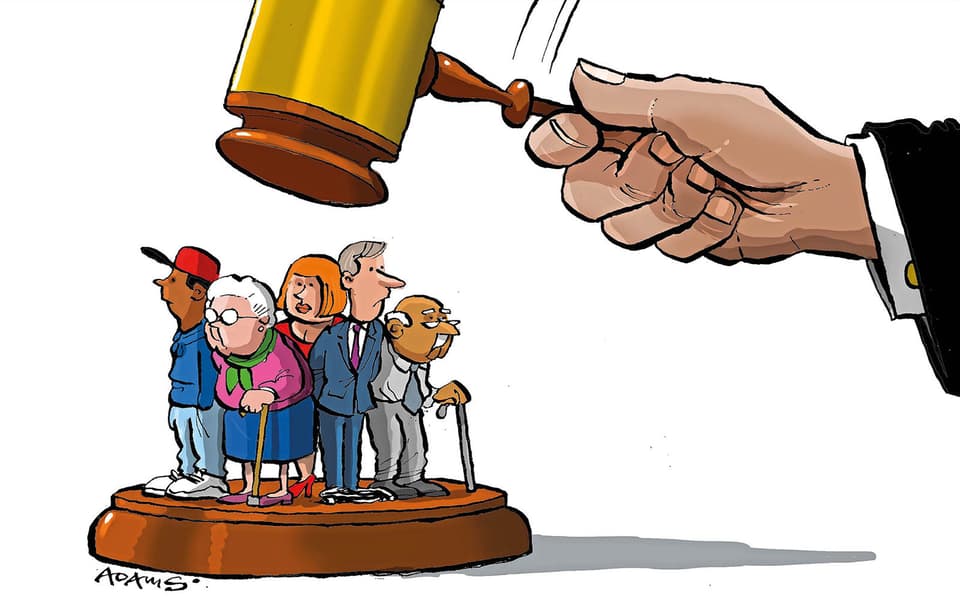

A mother has been convicted of not paying a £8.75 car bill as she was mourning the death of her baby, in the latest troubling case to emerge from Britain’s broken fast-track courts.
The 36-year-old was left grief-stricken when she suffered the devastating loss last September, just 13 days after her child had been born.
As she mourned for her baby the annual tax on her broken-down Hyundai expired, which then led to a criminal prosecution being brought by the DVLA.
The case was handled last week in the Single Justice Procedure (SJP), a controversial fast-track court process set up to deal with low-level crimes.
Read More
More than 14 months ago, magistrates themselves said the system is broken and in need of urgent reform. Yet it continues to operate without major changes.
When a case is dealt with by SJP, prosecutors – like the DVLA – do not routinely see key information contained in letters of mitigation, missing the chance to withdraw cases that do not appear to be in the public interest.
The grieving mother, from South Wales, was taken to court over £8.75 of unpaid car tax from the end of October 2024 to mid-January this year.
In her mitigation letter, she wrote: “I have been suffering with bad mental health in recent months after my baby died 13 days after birth in September, which has meant I keep forgetting to do things or haven’t been on top of things like bills etc.
“The car has been on my drive and was taken off my drive to try to get it started by jump starting it, so that it could be taken for an MOT and then taxed.
“I have still had no luck with starting the car even with a new battery and as I was on low income while off work after my baby died for a while it has been difficult to get things going with finding the money to fix the car.”
She also revealed that she has had to pay a £260 fee already when her car was clamped, after which she moved the vehicle back on to the driveway and declared it “off road”.
“It has been a very expensive mistake which I have struggled with but I apologise for this”, she added.
The case echoes that of Jenny Beasley, who spoke to a joint Standard/ITV News investigation last September after she was prosecuted for unpaid car insurance when her baby daughter Scarlett had died.

The SJP system handles around 800,000 criminal cases each year, allowing magistrates to take decisions on low-level criminal cases based on written evidence alone.
The system, which is shrouded in secrecy, was invented by the Conservatives in 2015 as a cost-cutting measure.
A long-running Standard investigation has exposed deep flaws in the system, with convictions for unpaid bills being recorded against pensioners with dementia, people suffering from mental health breakdowns, care home residents, grieving relatives, and domestic abuse victims.
The investigation has also found some magistrates take less than 60 seconds to decide on a case, some courts have imposed targets to get through a certain number of cases each week, and legal mistakes have gone unnoticed in the fast-track system.
The last Conservative government ignored the problems, while Labour has acknowledged that there are issues that should be addressed. But the government has so far failed to take urgent action, and instead held a consultation on possible changes which began in March and ended this week.
On Thursday, as the consultation closed, the government would not commit to immediate action to fix the SJP flaws and stop ongoing convictions which are not in the public interest, nor confirm the timetable for possible reforms.
“The Government recently consulted on the Single Justice Procedure and regulation of private prosecutors to review what more can be done to support vulnerable defendants”, a spokesperson said.
“The consultation closes today. We will consider its findings and respond in due course.”
While the consultation was ongoing, the Standard has uncovered the case of a man with a terminal illness convicted of not paying his TV licence, a woman with breasts cancer who was convicted over an unpaid car bill while in hospital, and a domestic abuse survivor left with a £146 bill and a criminal conviction over an unpaid TV Licence.
Christian Wakeford, the Labour MP for Bury South, said he would write to the Lord Chancellor Shabana Mahmood after the case emerged of a woman handed a criminal conviction for a bill on a car she had been coerced into owning by her ex-boyfriend.
TV Licensing has said it brings prosecutions only as a “last resort”, while the DVLA said it “urges anyone who receives a letter about potential enforcement action to get in touch with us if there are mitigating circumstances we need to know about”.
Both agencies point out that magistrates have the power to refer cases back to prosecutors if there is mitigation they believe should be reviewed.
The grieving mother received a criminal conviction and a six-month conditional discharge at Bradford magistrates court. She was also ordered to pay £85 in costs and settle the unpaid £8.75 bill.
The charity Sands provides a safe, understanding and caring community for anyone touched by pregnancy or baby loss. www.sands.org.uk/support



